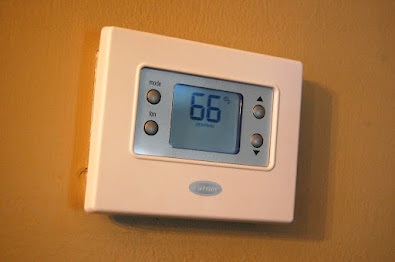How long do air conditioners typically last? What influences the lifespan?
Discover the secrets of air conditioners: from their lifespan to the factors that make or break them. Join me, the AC Expert, as we dive into the world of comfort and relief from the scorching summer heat. Uncover the mysteries of how long these modern essentials typically last and unravel the key factors that determine their fate. Get ready for an enlightening journey.
 |
| Home Ac Systems Lifespan |
How Long Do Air Conditioners Typically Last?
Air conditioners, those cool warriors, can last 10 to 15 years. But wait! With love and care, some units can defy the odds and soldier on for 20 years or more! Prepare to be amazed, dear reader, for an air conditioner's lifespan is a captivating mystery, influenced by countless factors that make each one truly unique.
Factors Influencing the Lifespan of Air Conditioners
- Quality of Manufacturing: The quality of materials used and the manufacturing process greatly influences the lifespan of an air conditioner. Units from reputable brands that prioritize superior craftsmanship tend to last longer and experience fewer breakdowns over time.
- Installation: Proper installation is very important for the longevity of an air conditioner. More than proper installation can lead to inefficiencies, strain on components, and increased wear and tear, resulting in a shorter lifespan. It is essential to hire certified HVAC professionals to ensure correct installation.
- Regular Maintenance: Regular maintenance is the most significant factor in prolonging the lifespan of an air conditioner. Routine maintenance by qualified technicians can prevent potential issues, optimize performance, and extend the unit's life. Neglecting maintenance can lead to more significant problems and a shorter lifespan for the AC.
- Usage and Cooling Load: The amount of usage and the cooling load the air conditioner needs to handle will impact its lifespan. Units that run for extended periods or in extreme temperatures may wear out faster than those used more moderately.
- Climate and Environment: The air conditioner's climate also influences its lifespan. AC units in regions with high humidity, salt exposure (near coastal areas), or severe weather conditions might experience more wear and corrosion, potentially reducing longevity.
- Frequency of Repairs: Frequent breakdowns and repairs can be a sign of underlying issues that, if not addressed promptly, can lead to premature failure of the air conditioner.
- Quality of Air Filters: Air filters play an important role in maintaining the health of an AC system. Regularly replacing or cleaning air filters helps prevent dust and debris buildup, which can strain the unit and negatively impact its lifespan.
- Upkeep of Condenser and Evaporator Coils: Keeping the condenser and evaporator coils clean and debris-free ensures efficient heat transfer and helps the AC function optimally for an extended period.
Want your air conditioner to last longer? Take care of it! Please give it some TLC and watch the magic happen. I'm an AC Expert, and I've seen it all. But don't worry, I'm here to spill the secrets on how to stay cool. Get a top-notch air conditioner, schedule regular check-ups with certified technicians, and be mindful of how you use it and its conditions. Follow these golden rules, and you'll be enjoying the sweet breeze for the summers to come!
What steps can you take to expand the life of your A/C?
Taking steps to extend the lifespan of your air conditioning system can result in cost savings for repairs and replacements, as well as improved efficiency. Here are some measures you can implement to increase the longevity of your A/C.
- Regular maintenance: Schedule annual maintenance with a qualified HVAC technician. They will inspect and clean your A/C, ensuring all components function properly. This can catch minor issues before they become major problems.
- Clean or change air filters: Dirty air filters can restrict airflow, reducing the A/C's efficiency and causing it to work harder. Clean or replace the filters regularly, usually every 1-3 months, depending on usage.
- Keep the outdoor unit clean: Ensure that the outdoor unit is free from debris, leaves, grass, and other obstructions. Regularly check and clean the area around the unit.
- Check the refrigerant levels: Low refrigerant levels can indicate a leak or other problems. If you notice decreased cooling performance, contact a professional to check and recharge the refrigerant.
- Use a programmable thermostat: A programmable thermostat allows you to set different temperatures for various times of the day, avoiding unnecessary strain on the A/C and reducing energy consumption.
- Maintain proper airflow: Ensure that vents and registers are not blocked by furniture or other objects and that nothing obstructs the return air grille.
- Reduce heat sources: Minimize heat-generating activities during the hottest parts of the day. Use fans and ventilation to help cool the space instead of relying solely on the A/C.
- Keep doors and windows sealed: Beat the heat! Seal your doors and windows tightly to keep that refreshing air in and the scorching heat out of your humble abode.
- Consider shading the outdoor unit: Placing it in a shaded area can help it operate more efficiently by reducing exposure to direct sunlight.
- Limit A/C usage during mild weather: Consider using natural ventilation or fans instead of running the air conditioner on cooler days.
- Address issues promptly: If you notice any strange sounds, odors, or decreased cooling performance, don't ignore them. Addressing problems can prevent further damage and expensive repairs.
- Know when to replace: Even with proper maintenance, air conditioners have a limited lifespan. If your A/C is older, inefficient, and requires frequent repairs, investing in a new, energy-efficient unit might be more cost-effective.
Discover the secrets to maximizing the lifespan of your air conditioning system and revel in refreshing coolness for countless summers to come!



Comments
Post a Comment